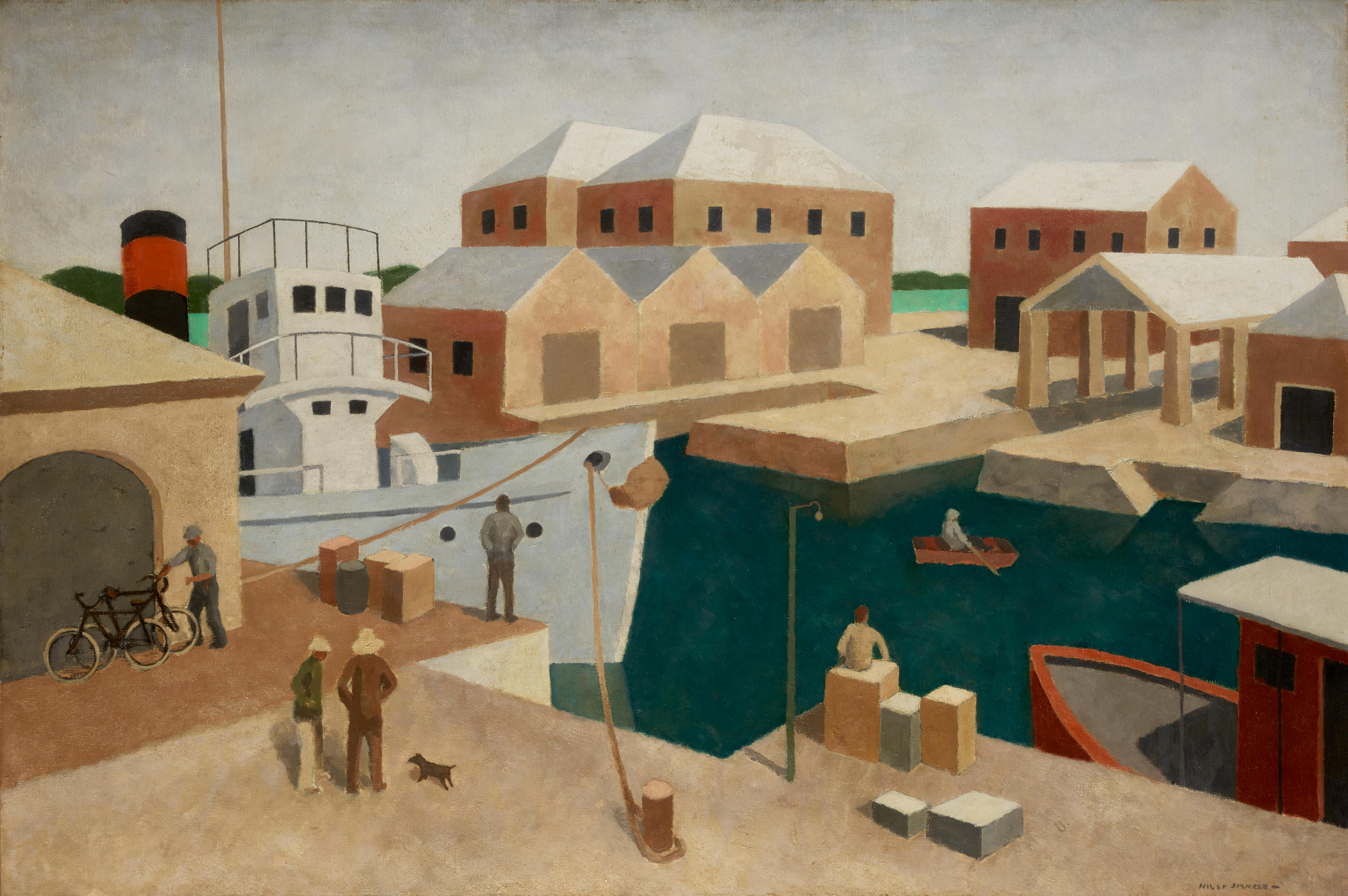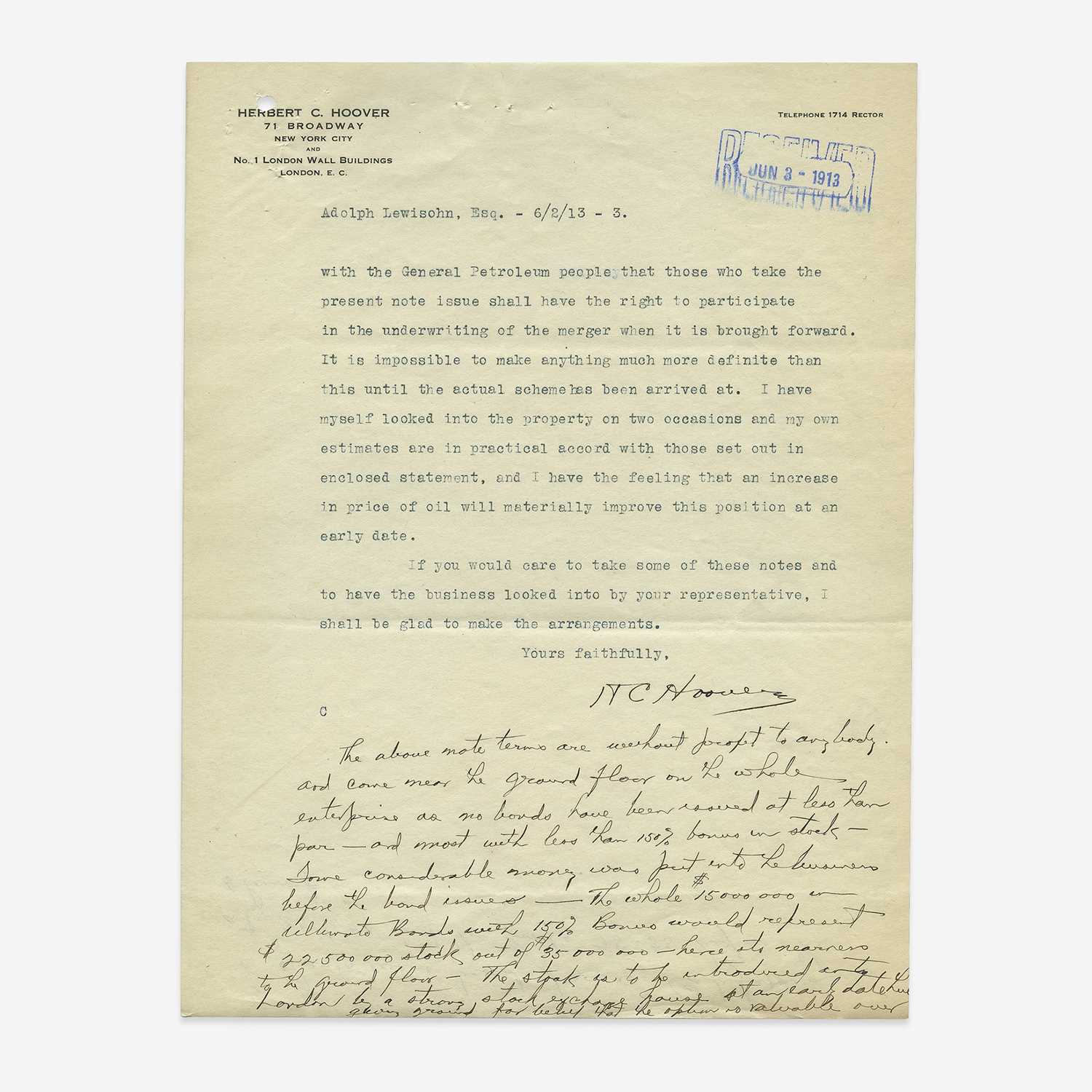Franklin Delano Roosevelt letters to Adolph Lewisohn, 1928-1932, 16 items (15 TLsS, one photostat). This small, but revealing collection of typed letters from Franklin Roosevelt to Lewisohn was written between Roosevelt’s candidacy for Governor of New York and his first candidacy for the Presidency. As a series, they do triple duty in revealing Lewisohn’s civic and philanthropic commitments, Roosevelt’s political rise, and the beginnings of the coalition of public spirited men and women that made the New Deal possible. The letters in this collection center on two areas in which Roosevelt sought Lewisohn’s support: the Warm Springs Foundation and the “prison problem.” An all-purpose progressive, Lewisohn became an early supporter of Warm Springs, the famous treatment center founded by Roosevelt in 1927 for victims of polio, and on Halloween 1928, Roosevelt took a break from his campaign for Governor to thank Lewisohn personally for his generosity, adding a characteristic flourish: I must pause for a moment in the midst of the campaign to tell you of my very deep appreciation of your fine gift to the Georgia Warm Springs Foundation... The work of the Foundation is progressing splendidly. We have sixty patients and all of them seem to be improving to a remarkable degree. If you go South this winter I hope you will find an opportunity to go to Warm Spring for a few days to see the progress of the work. We are now taking not only infantile paralysis, but a number of arthritis and rheumatism patients and the waiting list is growing... Two weeks later, Roosevelt shared news of his victory in the governor’s race “by a very close majority,” even though he had not yet had the recount validated. This latter letter includes a hand-written postscript: I don’t need to tell you how much I appreciate all you did to help. As governor, Roosevelt made a concerted effort to address the atrocious conditions in the state’s penal system after a series of prison riots exposed the problems, enlisting Lewisohn’s son Sam to help guide the reforms. On Dec. 9, 1929, just returned from Warm Springs, Roosevelt wrote optimistically that he expected “constructive legislation” in the next year, adding: Those prison riots accomplished more in one summer than many years of legislative hearings! In a letter written one month later, Roosevelt wrote: I have been reading Lombroso’s book with the greatest of interest..., presumably referring to one of the books by the Italian criminologist, Cesare Lombroso, who believed that criminal character was a product of biology and could be read in bodily measurements -- a sort of criminological version of phrenology. Roosevelt was impressed by the book: I wish every member of the Legislature might read it also; perhaps then we would soften the theory of an eye for an eye. The final letter in this collection, written Nov. 19, 1932, looks to the future, with Roosevelt thanking Lewisohn for his “enthusiastic message,” presumably regarding the results of the presidential election. It is my earnest wish that I may always deserve the confidence which you have shown in me. I shall look to you and to all my fellow-citizens for support and counsel during the days that are to come. A great patron of the arts and progressive causes in New York City, Adolph Lewisohn (1849-1938) was one of those rare individuals who became fabulously wealthy, then stepped away to use his money for public good. Born into a Jewish family in Hamburg, Germany, Lewisohn immigrated to New York at the age of 16 to assist in the family mercantile business. Energetic and entrepreneurial, he made a fortune, branching out into investment banking and most famously, he began to invest in the extractive industries, becoming one of the nation’s most renowned Copper Kings. By the 1890s, Lewisohn’s fortunes had grown so immense that he decided he had enough for a lifetime, and stepped away to devote himself to support a wide variety of philanthropic causes. A collector of
Franklin Delano Roosevelt letters to Adolph Lewisohn, 1928-1932, 16 items (15 TLsS, one photostat). This small, but revealing collection of typed letters from Franklin Roosevelt to Lewisohn was written between Roosevelt’s candidacy for Governor of New York and his first candidacy for the Presidency. As a series, they do triple duty in revealing Lewisohn’s civic and philanthropic commitments, Roosevelt’s political rise, and the beginnings of the coalition of public spirited men and women that made the New Deal possible. The letters in this collection center on two areas in which Roosevelt sought Lewisohn’s support: the Warm Springs Foundation and the “prison problem.” An all-purpose progressive, Lewisohn became an early supporter of Warm Springs, the famous treatment center founded by Roosevelt in 1927 for victims of polio, and on Halloween 1928, Roosevelt took a break from his campaign for Governor to thank Lewisohn personally for his generosity, adding a characteristic flourish: I must pause for a moment in the midst of the campaign to tell you of my very deep appreciation of your fine gift to the Georgia Warm Springs Foundation... The work of the Foundation is progressing splendidly. We have sixty patients and all of them seem to be improving to a remarkable degree. If you go South this winter I hope you will find an opportunity to go to Warm Spring for a few days to see the progress of the work. We are now taking not only infantile paralysis, but a number of arthritis and rheumatism patients and the waiting list is growing... Two weeks later, Roosevelt shared news of his victory in the governor’s race “by a very close majority,” even though he had not yet had the recount validated. This latter letter includes a hand-written postscript: I don’t need to tell you how much I appreciate all you did to help. As governor, Roosevelt made a concerted effort to address the atrocious conditions in the state’s penal system after a series of prison riots exposed the problems, enlisting Lewisohn’s son Sam to help guide the reforms. On Dec. 9, 1929, just returned from Warm Springs, Roosevelt wrote optimistically that he expected “constructive legislation” in the next year, adding: Those prison riots accomplished more in one summer than many years of legislative hearings! In a letter written one month later, Roosevelt wrote: I have been reading Lombroso’s book with the greatest of interest..., presumably referring to one of the books by the Italian criminologist, Cesare Lombroso, who believed that criminal character was a product of biology and could be read in bodily measurements -- a sort of criminological version of phrenology. Roosevelt was impressed by the book: I wish every member of the Legislature might read it also; perhaps then we would soften the theory of an eye for an eye. The final letter in this collection, written Nov. 19, 1932, looks to the future, with Roosevelt thanking Lewisohn for his “enthusiastic message,” presumably regarding the results of the presidential election. It is my earnest wish that I may always deserve the confidence which you have shown in me. I shall look to you and to all my fellow-citizens for support and counsel during the days that are to come. A great patron of the arts and progressive causes in New York City, Adolph Lewisohn (1849-1938) was one of those rare individuals who became fabulously wealthy, then stepped away to use his money for public good. Born into a Jewish family in Hamburg, Germany, Lewisohn immigrated to New York at the age of 16 to assist in the family mercantile business. Energetic and entrepreneurial, he made a fortune, branching out into investment banking and most famously, he began to invest in the extractive industries, becoming one of the nation’s most renowned Copper Kings. By the 1890s, Lewisohn’s fortunes had grown so immense that he decided he had enough for a lifetime, and stepped away to devote himself to support a wide variety of philanthropic causes. A collector of


.jpg)
.jpg)
.jpg)
.jpg?w=400?width=1600&quality=70)









Testen Sie LotSearch und seine Premium-Features 7 Tage - ohne Kosten!
Lassen Sie sich automatisch über neue Objekte in kommenden Auktionen benachrichtigen.
Suchauftrag anlegen